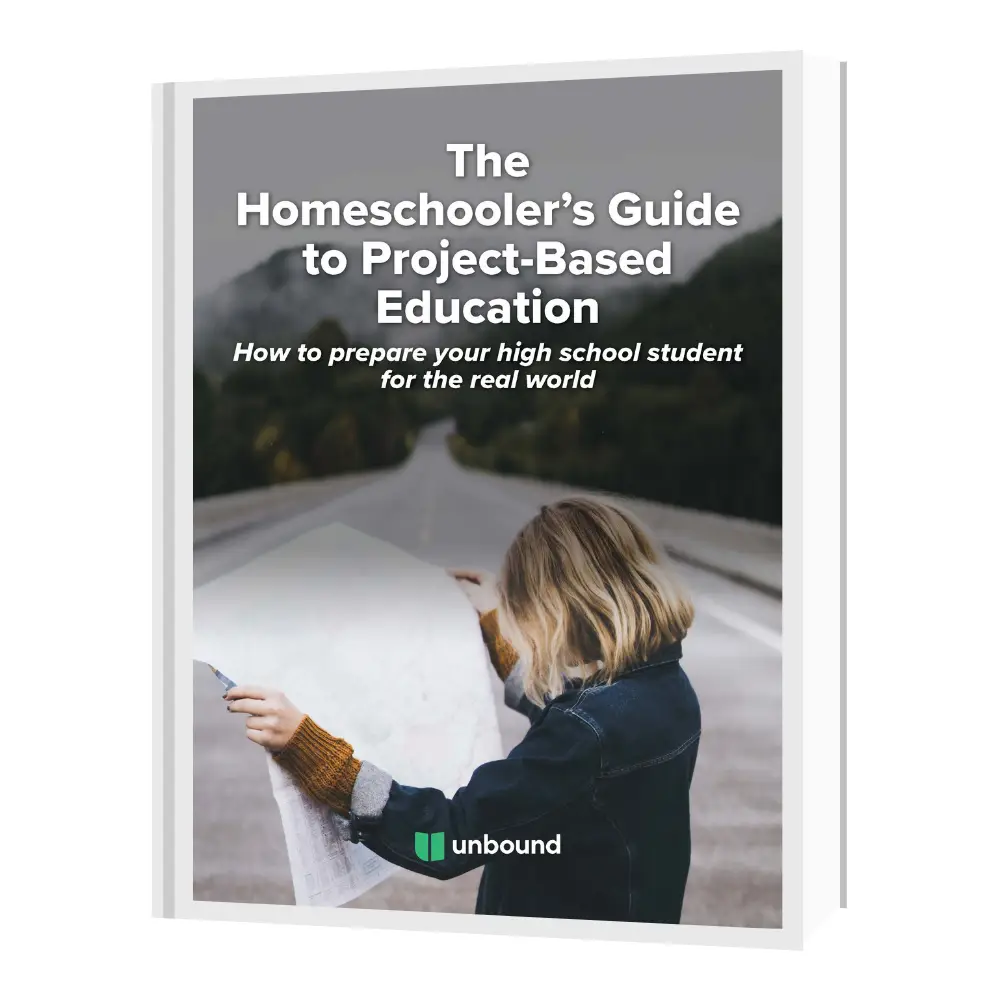Is Your Student Asking the Right Questions?

Here at Unbound we like to say (quite often actually) that one of the core learning skills you need to develop in the 21st century is the ability to operate in a questions-based paradigm. We live in “the Information Age”. We have so much access to information, just from the small computer in our pocket.
If you asked me how to tell you what year slippers were first invented, or what the difference between first and second-degree burns is, or how photosynthesis works, I wouldn’t be able to tell you. But I could find the answer in about two seconds flat by pulling up (insert your favorite search engine here).
The crux of education is no longer about gaining information. In fact, with so much information in our face all the time, the crux of education is determining what information matters most to the problem we’re trying to solve. And that takes asking questions.
A Questions Paradigm
With so many answers available to us, the real key is asking the right questions.
If we don’t know the right questions to ask, any answers we come up with won’t help us. Let’s illustrate this with a strange example:
Imagine you’re taking a multiple-choice exam but all the questions are missing. The first section of the exam provides you with four options:
The future of education in your inbox.
Get productivity tips, commentary, and Unbound updates sent to you!
- Green
- George Washington
- Ganges River
- All the Above
Which one is the correct answer? We can’t know until we have the right question! If the question is “Who was the first President of the United States?” then the answer is #2. But if the question is “Which word or phrase begins with the letter ‘G’?” then we have to go with answer #4.
This is a simple and silly example but it illustrates a powerful point. Education must prepare students to learn how to ask the right questions so they can properly interpret the information they have near-unfettered access to.
Life doesn’t come at us in neat multiple-choice exams. It comes at us in vague and ambiguous problems. If all the world’s problems were just questions that we needed answers to, we could solve most of them very quickly! But these problems oftentimes require far more than answers. They require someone with the discernment to ask the right question.
The Iterative Process
The questions-based paradigm we live in now isn’t just about asking one question to get a right answer. It’s a process.
You start with asking the right question. Then you get an answer to that question. And here’s the important part: you use that answer to ask a better question.
Let’s apply this to a relevant question that you or your student may be facing: should I go to college?
This is a big decision that has a big financial, social, and personal impact on your student’s life. Where do you begin?
Start asking questions. What is your student interested in doing for a career? Does that career require a college degree? Are there other ways of demonstrating knowledge and experience in that field instead of getting a college degree? If a degree is necessary, what kind of degree would be best?
These questions all build on each other. In a questions-based paradigm, each question and answer leads to another and another and so on.
Navigate is a 16-week online course that teaches students in high school and college how to operate in a questions-based paradigm and make better decisions by learning to ask the right questions. Sign up for a FREE mini-course preview today!




